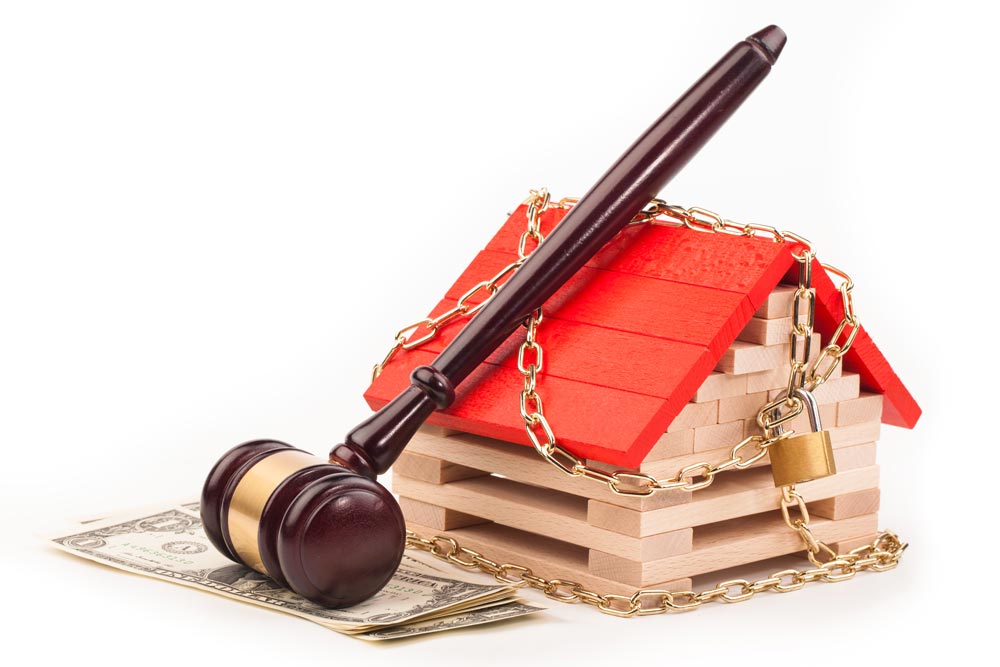
When you or a loved one is arrested, the quickest way to get out of jail is often to post bail. The cost of bail can be expensive, so many people choose to use a secured bond. This means that they put up some form of property as collateral in case they do not appear in court.
Once the trial is over and the fees have been paid, you may be wondering how to remove a bail bond lien on property. In this blog, we will explain what a property bond is and how you can remove the lien.
What is a Property Bond?
A property bond, or secured bond, is when the defendant agrees to put up some form of real estate as collateral for their bail amount. This means that if they do not appear in court or fulfill any other requirements such as paying fines, the court can seize the property and sell it to cover the cost of the secured bond.
These types of bonds are secured by a property bond – usually house as collateral for bail or personal possessions such as a car or jewelry. The bail bond company has the right to take possession of these assets if you fail to meet your obligations. Generally, secured bonds have higher interest rates than unsecured bonds and require collateral from the borrower.
What is a Bail Bond Lien?
A bail bond lien is a type of secured bond that is used when someone pays the bail. A lien is put on the property as collateral in case the accused person does not appear in court or fails to pay their bond debt.
If the bond debt is not paid, the bail bondsman may have the right to seize your property as payment. This is why it is important to keep up with payments and appear in court when necessary.
How to Remove a Bail Bond Lien on Property
If you have secured your bail bond with real estate, a lien will be placed on the property. To remove this lien, you must meet all conditions of your bail agreement, including appearing in court when required and paying fines.
Once this is done, you will need to contact the bail bond company to have them remove the lien from your property. The bail bond company may require additional paperwork before they can release the lien, so it’s important to ask what documents are needed in advance.
If for some reason the bail bond company refuses to remove the lien, you can file a Petition to Nullify Wrongful Lien. This petition must be filed in the same court where the secured bond was entered and should include evidence that all conditions of the secured bond have been satisfied.
If all required steps are taken but the lien is still not cleared from your property, it may be time to take further legal action. Consulting a lawyer may be necessary for this situation.
How Long Does it Take to Remove a Lien From a Property?
The amount of time it takes to remove a secured bond lien from your property can vary depending on the circumstances. Generally speaking, however, if all conditions of the secured bond have been met, it should not take more than a few weeks for the lien to be removed.
If you are having trouble with the removal process, speak to a lawyer who may be able to provide advice and assistance.
How to Avoid Bail Bond Liens
The easiest way to avoid bail bond liens is to try to resolve any outstanding legal issues. This may involve paying fines, following court dates, or completing community service hours (if applicable). If you fail to meet your obligations, secured bond companies can be forced to take legal action and place liens on your property.
As well, working with a reputable bail bond company, and avoiding cheap bail bonds, can help ensure that secured bonds are handled properly can help to avoid bail bond liens. A financial advisor or lawyer may be able to provide assistance in securing the secured bond. Finally, if you are able to pay back the secured bond in full, it will likely prevent a lien from being placed on your property.
Conclusion
In conclusion, secured bonds can be a useful tool for those who need financial assistance to get out of jail. However, it is important to understand the associated risks and obligations in order to avoid potential legal action or bail bond liens on your property due to missed payments. Taking the necessary precautions and working with a trusted secured bond company may help you minimize these risks.
To learn more, contact Bail Hotline today.